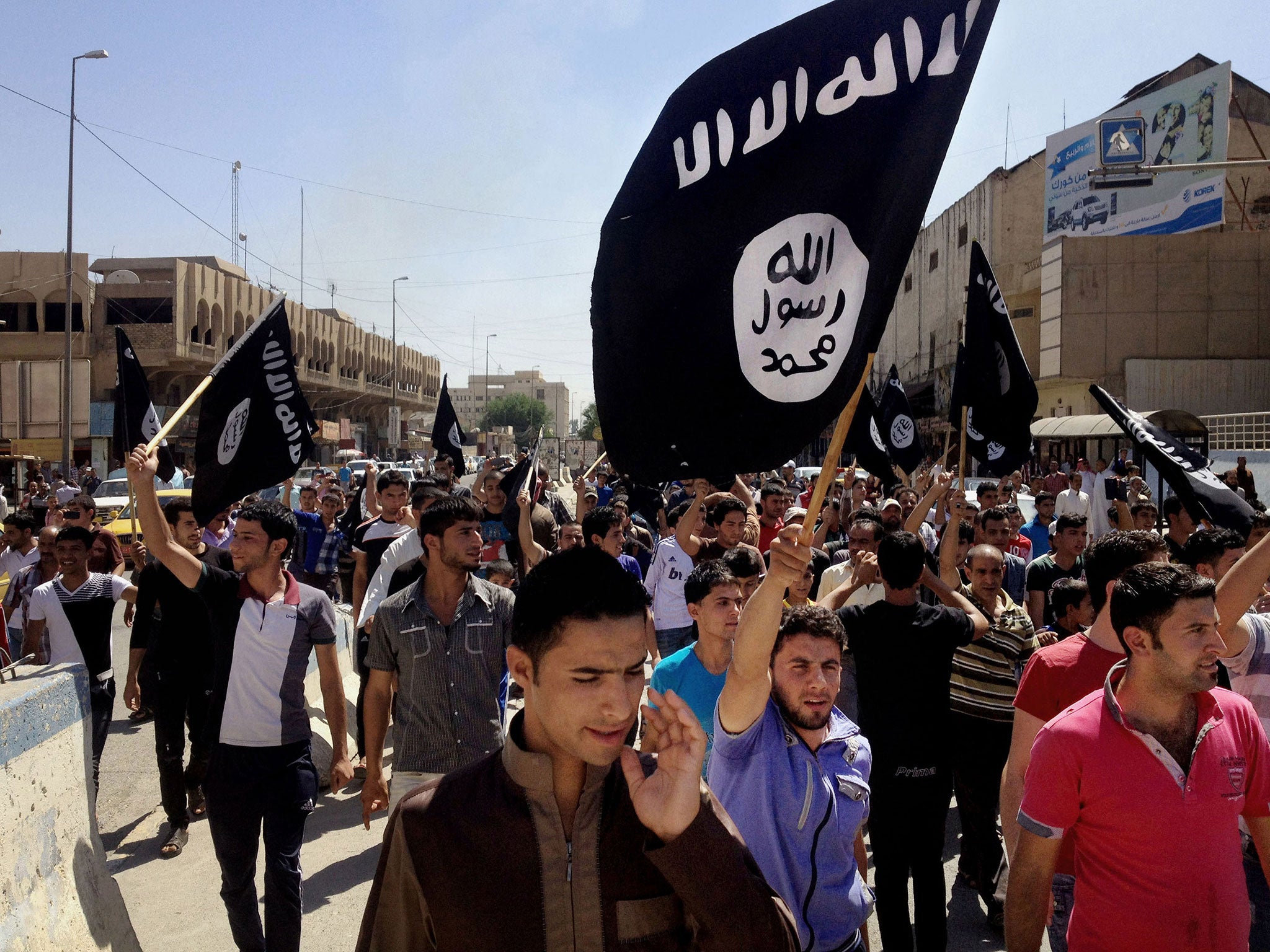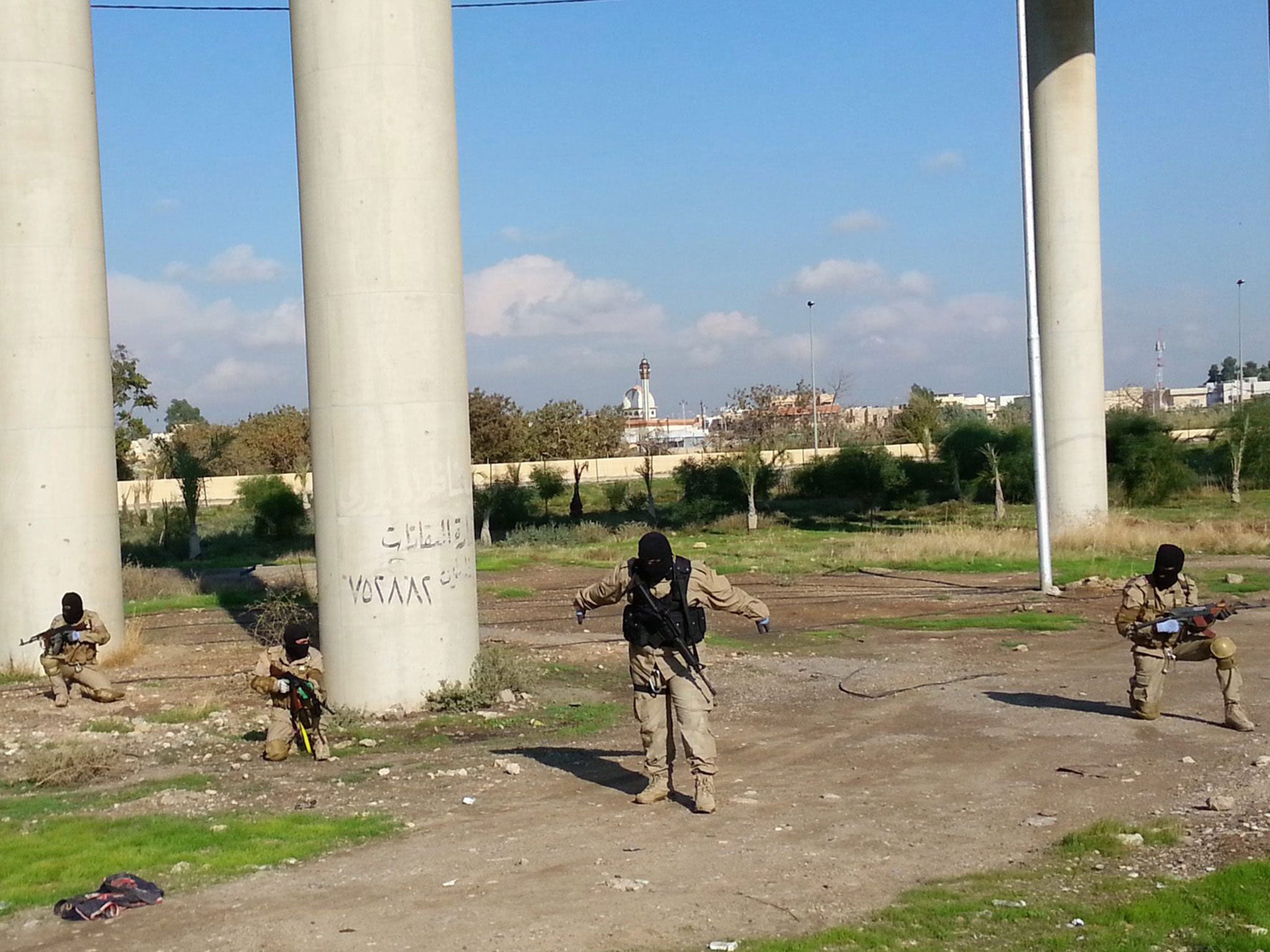Isis in Iraq: The brutal reality of life in Mosul under Islamic State - 'We are dying'
For Sunni Arabs still living in fundamentalist-controlled Mosul, life is sometimes mundane, sometimes terrifying as the occupiers seek to impose their unyielding interpretation of Islam

Your support helps us to tell the story
From reproductive rights to climate change to Big Tech, The Independent is on the ground when the story is developing. Whether it's investigating the financials of Elon Musk's pro-Trump PAC or producing our latest documentary, 'The A Word', which shines a light on the American women fighting for reproductive rights, we know how important it is to parse out the facts from the messaging.
At such a critical moment in US history, we need reporters on the ground. Your donation allows us to keep sending journalists to speak to both sides of the story.
The Independent is trusted by Americans across the entire political spectrum. And unlike many other quality news outlets, we choose not to lock Americans out of our reporting and analysis with paywalls. We believe quality journalism should be available to everyone, paid for by those who can afford it.
Your support makes all the difference.“It is like a terrible dream,” says a man who has just fled Mosul for Irbil, describing conditions in the city five months after Isis captured it in June.
He adds that “from the day they started to blow up the mosques people hated them”, referring to the destruction of the Mosque of Younis (Jonah) and other mosques denounced by Isis “as places for apostasy not prayer”.
The man, a small businessman who had been an army officer under Saddam Hussein and is now on a pension, was very nervous that anybody should learn his name. Some of his family have stayed on in Mosul to prevent their house being confiscated by Isis. Its officials check house-to-house demanding to see documents proving that the occupant is the owner. If they discover that the real owner has left the city, he is given 10 days to return or his house is confiscated by Isis.
He said actually crossing from Isis-controlled territory to that under the authority of the Kurdistan Regional Government (KRG) had not been difficult. He had taken the road between Mosul and Kirkuk that was guarded by “a couple of 15- or 16-year-olds with guns” at a checkpoint. A Kurdish friend sponsored him to enter the KRG.
Day-to-day life in the city he left behind was rapidly deteriorating, he said. For 28 days people had no fresh water or mains electricity. They now rely on local generators. Crude oil from Mosul province goes to Syria where it is refined, but the fuel which comes back is poor quality and ruins the engines it is used to power. Some foodstuffs, such as tomatoes, are cheap because farmers have no customers aside from the markets in Mosul.

Life in Mosul for a Sunni Arab – Christians and Yazidis have been forced to flee – is a mixture of normality, inconvenience and fear. Surprisingly, pensions are still being paid by the central government in Baghdad and the man I met at the weekend was still receiving his. But there is the burden of complying with new rules and regulations as Isis imposes its fundamentalist Islamic ideology. Some of these are inconvenient, such as the ban on smoking in public, or trivial, such as the removal of all pictures of Tom and Jerry from the walls of schools.
The imposition of the niqab, fully covering a woman’s face, is deeply resented. One woman in Mosul, whose name must also be concealed, writes: “Just this evening, with my old mom, I went out to shop and buy medicines in my car with a thin cloth showing my eyes only. What can I do? Last week, a woman was standing beside a kiosk, and uncovered her face to drink a bottle of water. One of them [Isis] approached her and hit her on the head with a thick stick. He didn’t notice that her husband was close to her. Her husband beat him up and he ran away, shooting randomly in the sky as the people, in sympathy, chased him so they could share in beating him. This is just one story of the brutality we are living.”
Such examples of open opposition to Isis are limited because people are terrified of savage retaliation at its hands. The retired businessman said this sense of dread never left him, “though generally if you don’t interfere with them, they don’t interfere with you”. But he recalled public executions in the middle of a roundabout, such as that of the lawyer Sameera Salih Ali al-Nuaimy, who had written on Facebook that the blowing up of mosques and shrines by Isis was “barbaric”. He says he stays mostly in his house, “going out 10 times in the past two months”.
“I was one of the people who hated [Nouri al-Maliki’s] army, but now I would like the Iraqi army to come back,” he says. “People in Mosul would welcome them. Anybody would be better than Isis, even the Israelis. We are dying.”
Such words may be joy to the government in Baghdad and its supporters in Washington or Tehran. But while detestation of Isis is common in the Sunni community in Iraq, so too is fear of the Iraqi army and the Shia militias that are the main fighting force of the Baghdad government.
One of its few military successes has been to relieve the besieged Shia Turkoman town of Amerli, but the 40 Sunni Arab villages nearby have been abandoned by their inhabitants. There is no good option for the Iraqi Sunni community, which knows that it will be punished as likely Isis supporters by vengeful government soldiers and militiamen if they return.
Isis is striking pre-emptively at local leaders in Mosul who might resist it in future. Imams from the mosques have been placed under house arrest and replaced by younger clerics supporting Isis. It does not target potential opponents randomly, but has its own well-organised security service that seeks to eliminate potential enemies before they can act.
When the former governor of Nineveh province, Atheel al-Nujaifi, announced last month that former army officers in Mosul were waiting for the Iraqi army to reach the city before rising up against Isis, the Islamic militants held a mass execution of army and police officers it held.
Isis may be unpopular in Mosul, but it will be difficult to dislodge.
Join our commenting forum
Join thought-provoking conversations, follow other Independent readers and see their replies
Comments